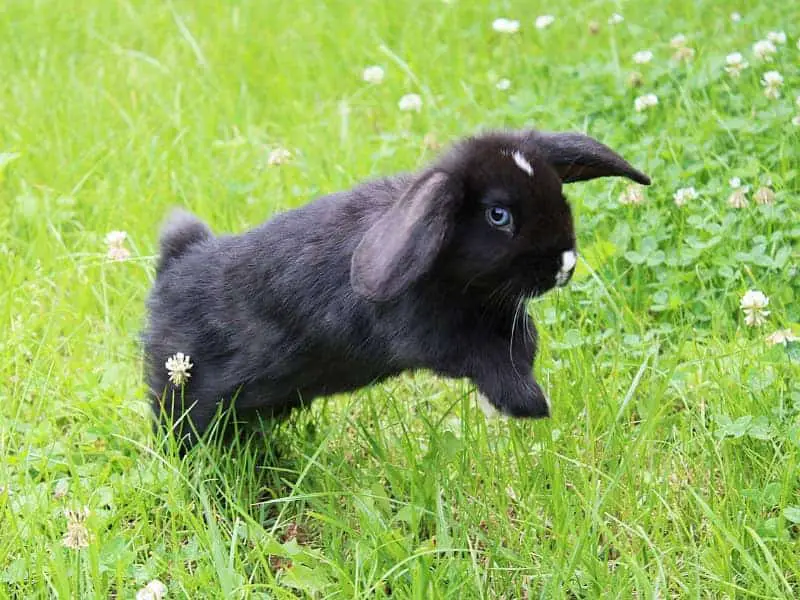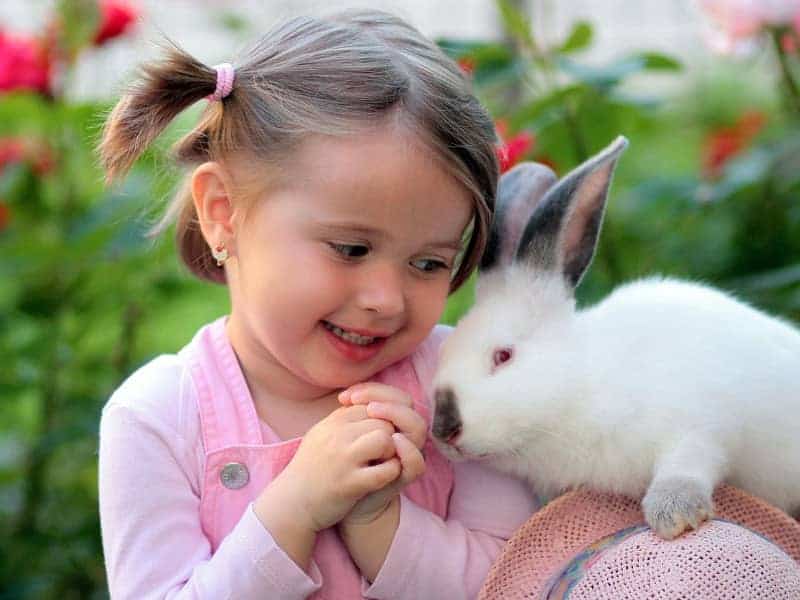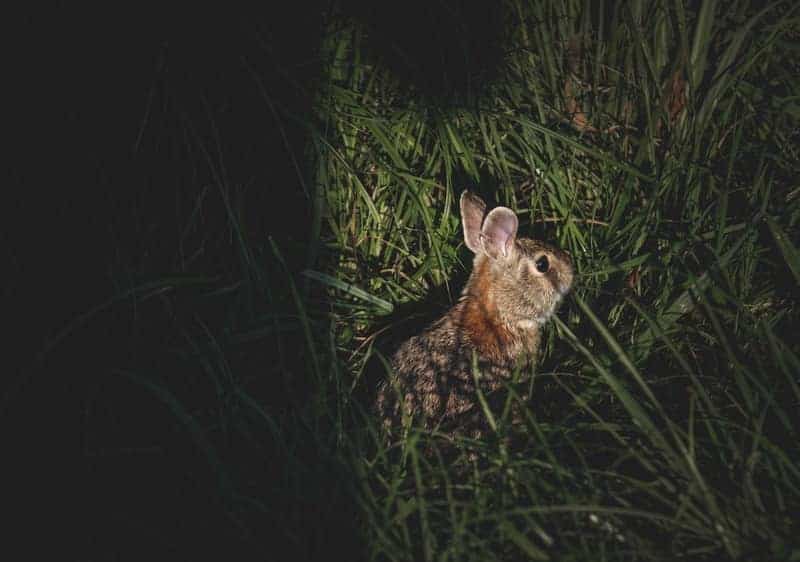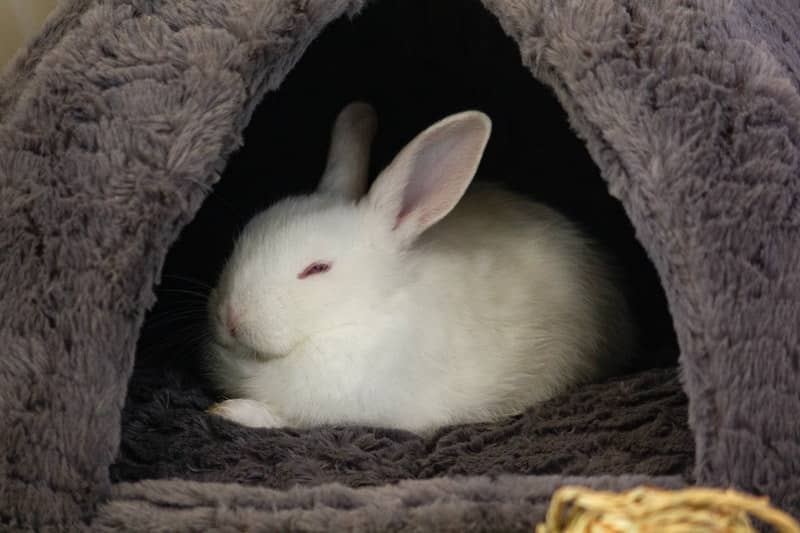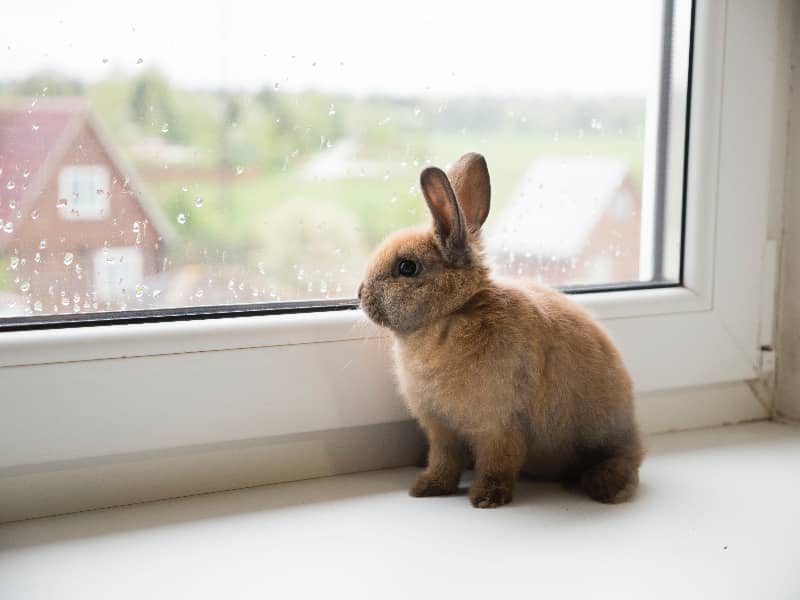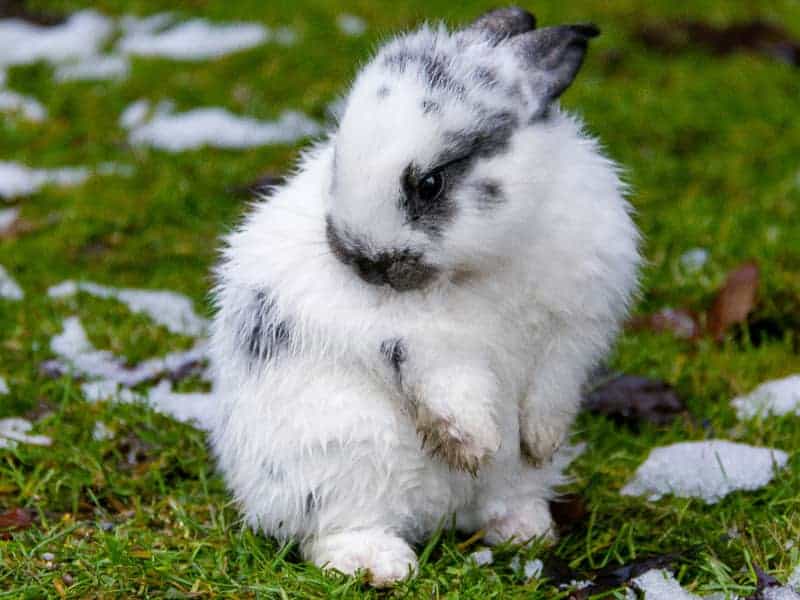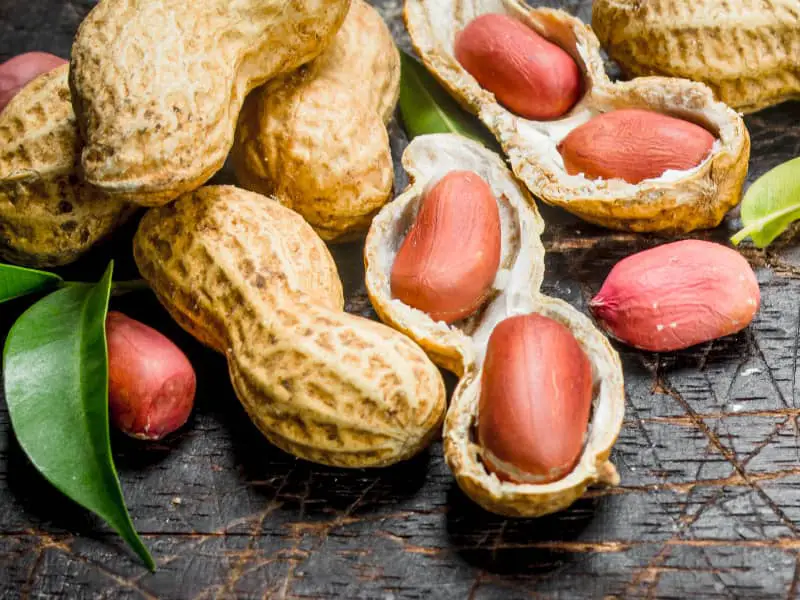
Are rabbits allowed to eat peanuts?
You're probably here because you have a rabbit or are thinking about getting one. Questions always come up when feeding these little creatures. One of the most common is about nuts, especially peanuts. This article will give you a comprehensive overview of the topic: Can rabbits eat peanuts?
General considerations about peanuts and rabbits
Peanuts, also known as Arachis hypogaea, are not really nuts, but legumes. They are an important source of proteins, fats and various vitamins and minerals for humans. But what about rabbits?
A rabbit's basic diet should consist of hay, fresh water, vegetables and specially formulated rabbit food. Peanuts do not fit directly into this category, but does that mean they are harmful?
The peanut: a look at its components
- The shell: The outer shell of the peanut is quite hard and difficult to digest. For rabbits, this can cause intestinal problems as their digestive systems are sensitive and not designed to digest hard and fibrous materials.
- The interior: The inner nut contains a lot of fat and protein. While fats and proteins are not harmful to rabbits in moderation, overfeeding can cause digestive upset and weight gain.
- Skin: The thin red skin that coats the peanut is rich in antioxidants, but can also be difficult for rabbits to digest.
The dangers of feeding peanuts
An occasional peanut as a treat probably won't hurt. But regular feeding of peanuts can lead to various problems:
- Digestive problems: As mentioned earlier, the hard components of peanut can cause digestive problems in rabbits. This can range from mild discomfort to serious problems such as constipation.
- Weight gain: The high fat and calorie density of peanuts can lead to rapid weight gain. Overweight rabbits are more prone to a variety of health problems, including heart disease and joint problems.
Are dwarf rabbits allowed to eat peanuts?
Pygmy rabbits are smaller and often have a faster metabolic and digestive system than their larger relatives. This means they tend to be more sensitive to foods that are not part of their regular diet.
Peanuts could be particularly problematic for dwarf rabbits, as even a small amount can cause digestive upset or excessive caloric intake. It would be advisable to keep dwarf rabbits away from peanuts or feed them only in minimal quantities.
Frequently asked questions
- Can I give my rabbit peanut butter? Peanut butter is delicious for humans, but for rabbits it is too greasy and often contains extra sugar and salt, which is not ideal for their diet. Therefore, you should avoid it.
- How often can I give my rabbit peanuts? If you decide to give your rabbit an occasional peanut, limit it to once or twice a month and always in tiny amounts.
- Are there other nuts or seeds that are safe for rabbits? Some owners occasionally feed their rabbits sunflower seeds or pumpkin seeds. However, these should also be given only in moderation.
Are rabbits allowed to eat peanut leaves?
A less discussed aspect of the peanut in relation to rabbits is the plant part above the ground - the peanut leaf. These green, feathery leaves are not as well known to humans because they are not commonly consumed. But what about rabbits?
- Nutrient content: Peanut leaves contain a lot of fiber and are less fatty compared to the nut itself. This could make them a better snack option for rabbits.
- Digestibility: As with most green leaves, peanut leaves are easier for rabbits to digest. However, there are few studies investigating the exact effects of peanut leaves on rabbits.
- Possible toxicity: Although peanut leaves are generally not considered toxic, it is still advisable to feed them in moderation and monitor your rabbit's reaction to them first.
Practical feeding tips
If you decide to give your rabbit peanuts or peanut leaves, keep the following tips in mind:
- Monitor quantity: One or two peanuts per month is more than enough. For peanut leaves, you should start with a small amount and observe the rabbit.
- Always untreated: Never give your rabbit salted, roasted or spiced peanuts. These may contain harmful additives.
- Observe reaction: See how your rabbit reacts to the food. If there are any signs of discomfort or digestive problems, you should stop immediately and consult a veterinarian if necessary.
Interesting facts about peanuts
To round out the topic, here are some interesting facts about peanuts:
- Peanuts are actually not nuts. They belong to the legume family and are more closely related to beans and peas.
- They grow underground, which makes them a unique member of their family. The plant pulls the flower into the ground after pollination, where the peanut then matures.
- China is the largest producer of peanuts in the world.
These facts can not only expand your knowledge, but also help make the topic interesting when talking to other animal lovers.
Alternatives to peanuts for rabbits
While the debate continues about the suitability of peanuts as a treat for rabbits, there are many other healthy and safer snack options you can consider:
- Carrots: This orange vegetable is a well-known favorite among rabbits. They are rich in beta-carotene and provide a sweet change of pace. Note, however, that they contain sugar and should therefore be given in moderation.
- Kale: A nutrient-rich leafy vegetable that provides calcium, vitamin K and many other important vitamins and minerals.
- Parsley: This herb is a healthy food not only for humans. Rabbits love the taste and benefit from the vitamins and minerals.
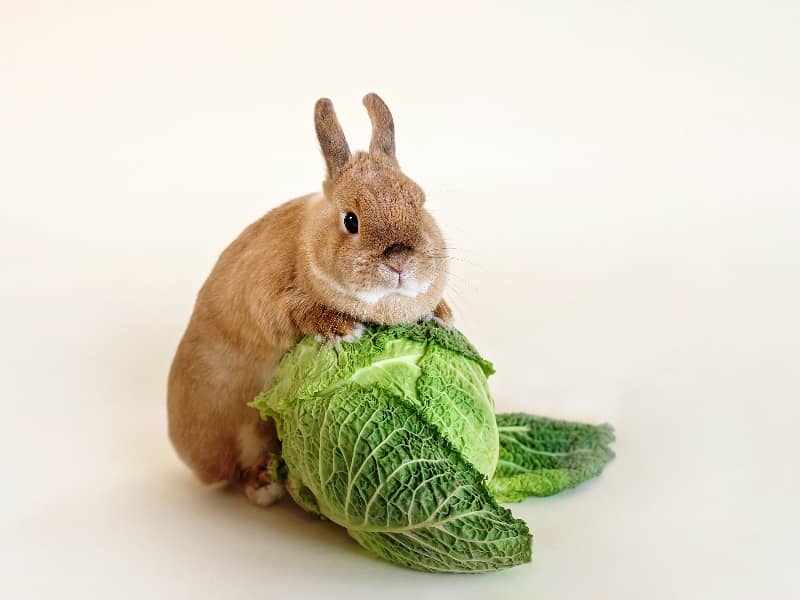
Diversity in rabbit nutrition
A rabbit's diet should be varied to ensure it receives all the nutrients it needs. While hay should be the main food source, fresh vegetables and herbs provide an important supplement that provides vitamins, minerals and other nutrients.
- Variety promotes digestion: A varied diet supports the rabbit's natural digestive processes and prevents intestinal sluggishness.
- Prevents boredom: Like people, rabbits also enjoy some variety in their diet. Offering different vegetables and herbs can keep your rabbit interested and curious.
- Covers the nutrient needs: By offering your rabbit a variety of vegetables and herbs, you will ensure that it receives a balanced mix of nutrients.
Peanuts comparison with other foods
It is important to see the debate about peanuts in a larger context. While peanuts - like many other foods - may not be harmful in moderation, there are many other foods that should definitely be avoided:
- Chocolate and coffee: These are toxic to rabbits and can cause serious health problems.
- Leeks and onions: These vegetables can damage a rabbit's blood.
- Bread, pasta and other high-carbohydrate foods: They can cause digestive problems and should be avoided.
Knowing which foods are safe and which should be avoided is critical to helping your rabbit live a long and healthy life.
Here is a table with the nutritional information for peanuts, based on an amount of 100 grams:
| Nutrient | Quantity |
| Energy | 567 kcal |
| Total fat | 49 g |
| - Saturated fatty acids | 7 g |
| - Monounsaturated fatty acids | 24 g |
| - Polyunsaturated fatty acids | 16 g |
| Cholesterol | 0 mg |
| Sodium | 18 mg |
| Potassium | 705 mg |
| Carbohydrates | 16 g |
| - Dietary fiber | 8,5 g |
| - Sugar | 4,7 g |
| Protein | 26 g |
| Vitamin E | 8.33 mg |
| Vitamin B-6 | 0.35 mg |
| Magnesium | 168 mg |
| Iron | 4.58 mg |
| Calcium | 92 mg |
Please note that these values may vary slightly depending on the peanut variety and growing conditions.
Conclusion: Are rabbits allowed to eat peanuts?
Feeding our furry friends requires constant mindfulness and knowledge to ensure that their diet is both nutritious and safe. When it comes to peanuts, it's a topic that unsettles many rabbit owners.
Peanuts are naturally high in nutrients and, when given in moderation and in their pure form (i.e., without salt or other additives), can serve as an occasional treat for rabbits. However, it is important to emphasize that they should only be given in small amounts because of their high fat content. This is especially true for dwarf rabbits, which may be more prone to weight gain and associated health problems.
The leaves and stems of the peanut plant may be a safer snack option, although caution should be used here as well. There are few studies on their digestibility and possible toxicity, so the rabbit's reaction should be closely monitored.
There are many alternatives to peanuts that are considered safe and nutritious snacks for rabbits, including carrots, kale and parsley. A rabbit's diet should be primarily varied and balanced, with hay always being the main component of their diet.
Overall, the key to a safe and healthy diet for your rabbit is knowledge and mindfulness. If you are ever unsure of what to feed, it is always advisable to consult with a veterinarian. It's better to be cautious and make sure your furry friend lives a long, healthy and happy life.
Author

-
Garden animal - A life with nature
Welcome to my animal blog! My name is Dirk and I am happy to take you on my journey through the fascinating world of animals and gardening.
Born 54 years ago, I have had an insatiable curiosity for the animal world around me since childhood. Although I have moved professionally in other industries, my true passion has always been animals and nature. It is remarkable how a small garden has become such an important part of my life.
Many of my fondest memories are associated with the animals that share our home. Whether it's the curious squirrels that scurry across the trees in the morning, the colorful variety of birds that visit our feeders, or the busy bees and butterflies that pollinate our flowers, every moment with them is invaluable to me.
This blog is my contribution to share my experiences, discoveries and insights with like-minded people. Here I will share stories of unforgettable encounters with animals, give tips on gardening and creating wildlife-friendly habitats, and take you on my journeys through nature.
Thank you so much for being here!
Cordial,
Dirk aka garden animal
Last posts
- 27. February 2024PetsVeganes Hundefutter – Grün und Gesund?
- 18. January 2024ChickensOregano für Hühner
- November 27, 2023HamsterDiurnal hamsters
- November 24, 2023HamsterHamster hammock

